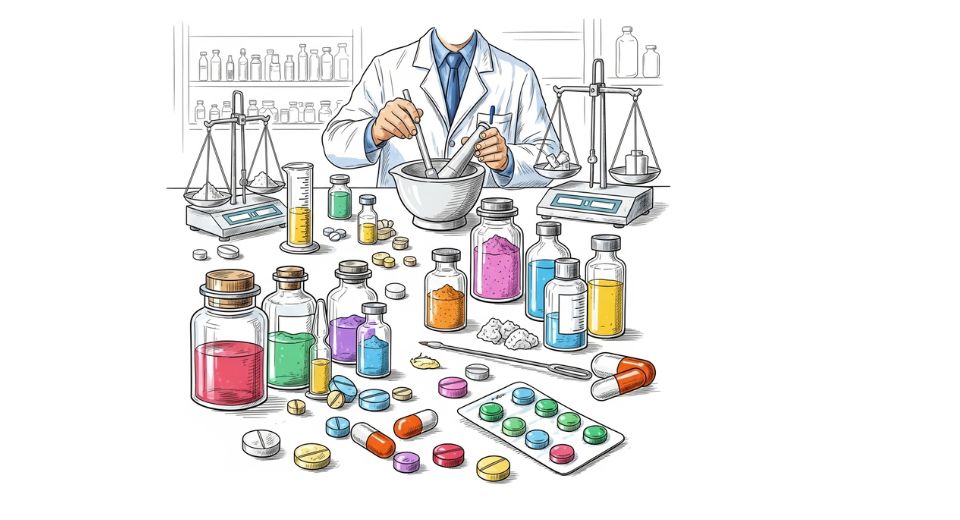
Jul 29, 2025

The newly published report assembled by Metastat Insight explores the framework and directional flows defining the Compounding Pharmacies Market. When considering this industry, one is met with a complicated but at times overlooked section of pharmaceutical delivery that addresses customized treatment protocols in ways mass production cannot. Compounding medications, by their very nature, are specific to the needs of the individual, a practice that appeals to certain patient populations such as those with allergies, pediatric populations, or those in palliative care. The industry based on these practices does not exist on the fringes of medical care but, rather, creates a unique identity based on specificity and patient-oriented service. Global Compounding Pharmacies market is projected to touch $14,926.66 million in 2025 with a CAGR of 6.0% from 2025-2032.
This is not an environment shaped by monolithic firms with enormous assembly lines, but by more agile operations that modulate their production in response to the intricate demands of prescribers and their communities. Although the model would not replicate standardization in mass production of pharmaceuticals, it would still need strict quality controls and strict regulation. These institutions have been compelled to adapt in terms of sophistication and scale, to newer technologies, to accepting software for precision, and to reacting to regulatory adjustments that continue to redefine best practice. Market participants operating within this arena tend to be engaged in a delicate balancing act—to fulfill individualized demand while complying with increasingly stringent compliance measures. That tension, though uncomfortable, has been a motivator for enhancing operational integrity and transparency.
It is against this backdrop that the compounding pharmacies derive both their challenge and their impetus. As patients in growing numbers look to alternatives to commercially prepared drugs because they are unavailable, cause unacceptable side effects, or require specific dosages, such pharmacies compensate by developing solutions that fit those subtle conditions. An increasing awareness among medical professionals of the potential advantages of customized medication regimens is also on the horizon. This increasing awareness provides a subtle but valuable impetus to the activity in the Compounding Pharmacies Market, as prescribers become more confident to prescribe compounded medications. This, in turn, fosters a culture of cooperation between pharmacists and prescribers, leading to a more holistic way of treating planning.
These interactions are not mere transactions but an extended conversation to ensure maximal results. Regional variations also portray a multifaceted picture. What can be allowed and even promoted in one region could be closely scrutinized or prohibited in another. This quilt-like law and enforcement patchwork results in a varied operating environment, leading players to create flexible solutions and compliance tools that honor local requirements. It also leads to the rarely uniform approach adopted by these organizations.
Success is not only dependent upon the technical prowess of creating a compound but upon a keen awareness of legal systems, cultural norms, and clinical applicability. Innovation in this field is frequently non-traditional in nature. It may not merely be advancements in chemical compounds but in the reception, processing, and delivery of prescriptions. Incorporation of technology into record-keeping and verifications has become necessary. It is not unusual these days to see sites that provide an effortless exchange of data between healthcare practitioners and compounding experts, making both faster and safer. Although the essence of practice is still centered on preparing medicines, the support system around it has become highly developed.
The mission of trust cannot be overemphasized. Such patients use compounded medications by necessity, not by choice, and that relationship is inherently predicated on trust. It is thus up to providers in this industry to work toward building and sustaining a reputation for dependability, discretion, and consistency. Word of mouth, professional referral, and long-term institutional relationships all serve to ensure the longevity of compounding facilities. As such, reputation is as valuable as currency as the drugs themselves. Outside human pharmaceuticals, the Compounding Pharmacies Market broadens into veterinary medicine, where animals enjoy bespoke solutions for individual metabolic profiles or flavor preferences. This aspect, sometimes underemphasized, illustrates the adaptive nature of compounders and the potential to fulfill needs across species boundaries. It also indicates a wider definition of healthcare—one encompassing pets and livestock within the therapeutic care umbrella.
Economic patterns, demographic changes, and levels of health literacy also shape where and how compounded medicines are sought out. In places, it's driven by a population of older adults with chronic diseases ill-served by mass-produced medicine. In others, it can be due to a very educated citizenry hungry for alternatives that better feel personalized or natural. The capacity of this industry to navigate such a wide range of drivers is testament to its responsiveness and resilience, even as it finds itself subject to greater scrutiny or growing operating expenses. In weaving together these strands, the evidence provided through Metastat Insight's newest review reveals more than transactional information. It creates an image of an industry working quietly but insistently to hone its technique, deepen its abilities, and broaden its applicability.
The Compounding Pharmacies Market continues to follow a path that values adaptability, integrity, and an individualized ethos. To this end, the report is a story of change, emphasizing how a small but important segment of pharmaceutical practice remains committed to charting its course with a concern for care as much as commerce.
Drop us an email at:
Call us on:
+1 214 613 5758
+91 73850 57479